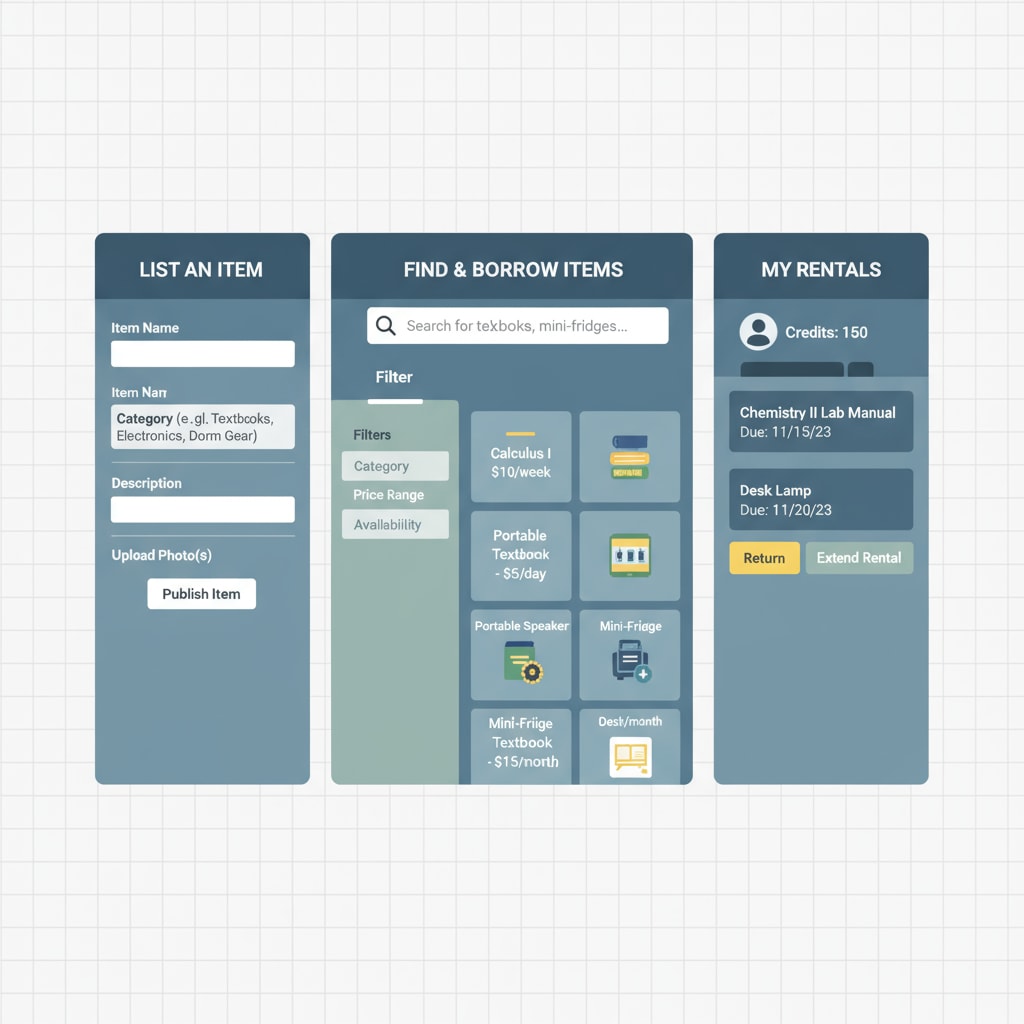In the context of K12 education, student rental platforms for idle item sharing offer a unique opportunity for students to not only make use of otherwise wasted resources but also potentially earn some extra income. This concept is more than just a simple exchange of goods; it holds significant educational and practical value.

The Educational Significance of Student Idle Item Sharing
One of the primary benefits of such a platform is the cultivation of students’ resource awareness. In today’s consumer-driven society, many items are discarded after minimal use. By participating in an idle item sharing platform, students learn the importance of reusing and recycling. For example, textbooks that are no longer needed by one student can be rented or shared with another, reducing the demand for new ones. This not only conserves resources but also instills in students the habit of valuing what they have. Conservation ethic on Wikipedia
In addition, the platform serves as a great tool for developing students’ economic literacy. They get to understand concepts like supply and demand, pricing, and profit. When students list their items for rent or sale, they need to determine a reasonable price based on the item’s condition and market demand. This hands-on experience helps them gain a better understanding of basic economic principles.
The Practical Feasibility of the Platform
Implementing a student idle item sharing and rental platform is indeed feasible. With the prevalence of digital technology, creating an online platform where students can list, search, and rent items is relatively straightforward. Schools can play a crucial role in facilitating this. They can provide the necessary infrastructure, such as a dedicated website or mobile application, and ensure proper security and verification procedures. Digital technology on Britannica

Moreover, schools can also promote the platform among students and parents. By organizing awareness campaigns and workshops, more students will be encouraged to participate. This will in turn increase the variety of items available on the platform, making it more attractive and useful for everyone.
However, like any new initiative, there are challenges to overcome. One issue could be the management of disputes. For instance, if an item is damaged during the rental period, there needs to be a clear process for resolving the conflict. Another challenge is ensuring the safety of transactions. Schools and platform administrators need to implement strict measures to protect students’ personal information and financial details.
In conclusion, a K12 student idle item sharing and rental platform has great potential. It offers a win-win situation where students can learn valuable lessons while also enjoying the benefits of resource sharing and potentially earning extra income. By addressing the challenges and seizing the opportunities, this platform can become an integral part of the K12 educational ecosystem, promoting a more sustainable and economically aware generation of students.
Readability guidance: Short paragraphs and lists are used to summarize key points. Each H2 section provides a list of related ideas. The proportion of passive voice and long sentences is controlled. Transition words like however, in addition, etc. are scattered throughout the text.


